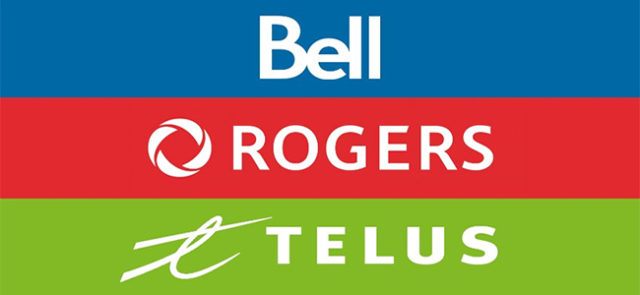
CRTC Ruling Forcing Telecoms to Reduce Pricing Will Lower Long-Term Competitiveness: REPORT
A new report claims the CRTC’s new rules forcing telecommunications companies to slash their prices will diminish long-term competitiveness.

According to the report issued Thursday by Boston Consulting Group (via Financial Post), reducing prices on wireless and internet services could potentially “lead to a shortfall of $15 billion needed to develop the imminent 5G technology. The subsequent loss in the digital sphere could cost the country’s economy $200 billion a year by 2040, the consultant said.”
“Canada’s policy makers must address the legitimate goal of consumer affordability without hampering Canada’s competitiveness and its digital future,” authors Lawrence Kuo and Vadim Gouterman write. “A sharp hit to industry revenue will flow through into a private investment gap that is unlikely to be filled by public funding.”
The analysis backs up the case made by telecoms like Bell and Rogers, who are both petitioning to the federal cabinet to overturn a decision made by the CRTC to reduce wholesale rates to resellers by as much as 77 percent. The companies claim that this price cut will allow said resellers to take their customers while it reduces the revenue needed to upgrade networks in rural areas.
On the other hand, consumers and resellers are arguing that large telecoms have earned “substantial profits in near monopoly conditions for decades and the market needs to be more competitive.”
“One of the key tradeoffs is between affordability — which is immediate, emotional and highly visible — and other factors such as quality, availability, investment and innovation, factors that have significant long-term social and economic impacts, but are less visible, more gradual and harder to measure,” the consultant said.
Private investment in Canada’s digital infrastructure is more than $10 billion CAD per year, but a 25 percent drop in pricing and the CRTC ruling for lower wholesale rates could potentially cause a $2 billion a year or more shortfall in capital expenditures by telecoms
“Citizens may end up with slower and less-certain access to world-class connectivity, especially in digital-divide areas where business cases will become even less attractive,” the authors wrote.
According to the report, Canadian telecoms have higher margins than other global telecoms, but ranked fourth highest on a list of capital investments by 35 countries. While the report said that Canada was at the forefront of 4G deployment, it also warned that Canada is lagging behind other countries in rolling out 5G technology.
“Now is not the time to launch regulation that would hamper the required private investments right on the cusp of the 5G era,” Boston Consulting said. It called for “more open dialogue and collaboration between the public and private spheres.”
The re-elected Liberal government under Prime Minister Justin Trudeau is promising to lower wireless bills by 25 per cent, but Canadians are awaiting just how the government plans to achieve that, without incumbents pushing back.

